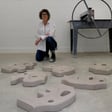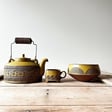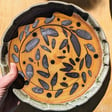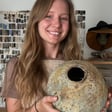
The Power of Continuous Learning with Mike Griffin
In this episode of Shaping Your Pottery, Mike Griffin shares his journey and insights in the pottery world. He emphasizes the importance of continuous learning, experimenting with new techniques, and seeking inspiration from fellow potters. From his initial discovery of pottery at Alfred University to his innovative approach to hand-building and his recognition in Ceramics Monthly, Mike's story is filled with lessons on overcoming fear, making mistakes, and having fun. He also provides practical advice on leveraging community studios and entering pottery shows to grow as an artist. Listeners are encouraged to explore Mike's work on Instagram and join his upcoming workshops. You can learn more about Mike by checking out his instagram https://www.instagram.com/mike_griffin_ceramics/
Get your 53 themes by clicking this link shapingyourpottery.com/53themes
Join the Clay Games Community to connect with like minded potters and compete in monthly pottery competitions Join Here
00:00 Introduction and Free Pottery Themes
00:48 The Importance of Continuous Learning in Pottery
01:34 Mike's Journey into Pottery
03:17 Encouragement and Growth as an Artist
05:14 Community Studios and Learning Opportunities
06:24 Developing a Unique Pottery Style
11:36 Switching from Wheel Throwing to Hand Building
18:53 Finding Your Voice in Pottery
21:55 Opportunities and Recognition
25:51 Final Thoughts and Advice
26:22 Outro and Additional Resources





